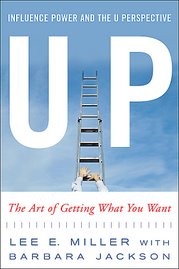President John F. Kennedy once said of Walt Rostow, his former deputy special assistant for National Security Affairs, "Walt is a fountain of ideas; perhaps one in 10 of them is absolutely brilliant. Unfortunately, six or seven are not merely unsound, but dangerously so."
In that statement, Kennedy reminds us good ideas are more important than new ones, highlighting the value of judgment honed through experience. Yet, in a society that seems obsessed with whatever is new, it can be hard to sell the value of hiring an older employee. But there are many things a seasoned worker can do to overcome society's stereotypes and a hiring manager's potential bias.
"There is experience and then there is diversity of experience," says Thomas Fuller, general managing partner of Epsen, Fuller IMD International Search Group, an executive search firm based in Morristown. The quality of the experience is what matters, he says.
If you're an older job candidate, focus on your accomplishments, so a prospective employer recognizes what you'll bring to the organization. Describe that experience in a way that matches the business needs of the organization.
Jack Miller, (no relation to me), author of "Simply Success: How to Start, Build and Grow a Multimillion Dollar Business the Old-Fashioned Way," started a new career at age 69. After selling a previous business to retailer Staples, he became Chairman of Successories, a business-to-business mail-order firm.
Miller suggests older employees show how their experience will have an immediate effect on a company. He says veterans bring much to the work force: They tend to have a strong work ethic, are less likely to job hop and will not have the challenges of balancing work and the obligations of raising young children, factors that can be pointed out to a prospective employer.
Here are some other factors that will help older workers land a job:
A good job candidate "should have at least one significant job accomplishment for each year of employment," Drum says. Concrete examples of how you have successfully made transitions to new situations and stories about how you achieved significant results should give you an edge in the hiring process.
Employers almost always seek a candidate with relevant experience -- just ask any student seeking his or her first job. Experience, however, does not preclude new ideas. Whether the candidate of experience triumphs over the candidate of new ideas, often has to do with how experience is presented.
Veteran candidates wishing to be selected ahead of talented younger prospects should demonstrate to a potential employer that they can apply their experience in a rapidly changing business environment.
A veteran human resources executive, Lee E. Miller is the author of "UP: Influence Power and the U Perspective -- The Art of Getting What You Want," and the co-founder of YourCareerDoctors.com, a website devoted to career success. Mail questions to Lee@YourCareerDoctors.com.


